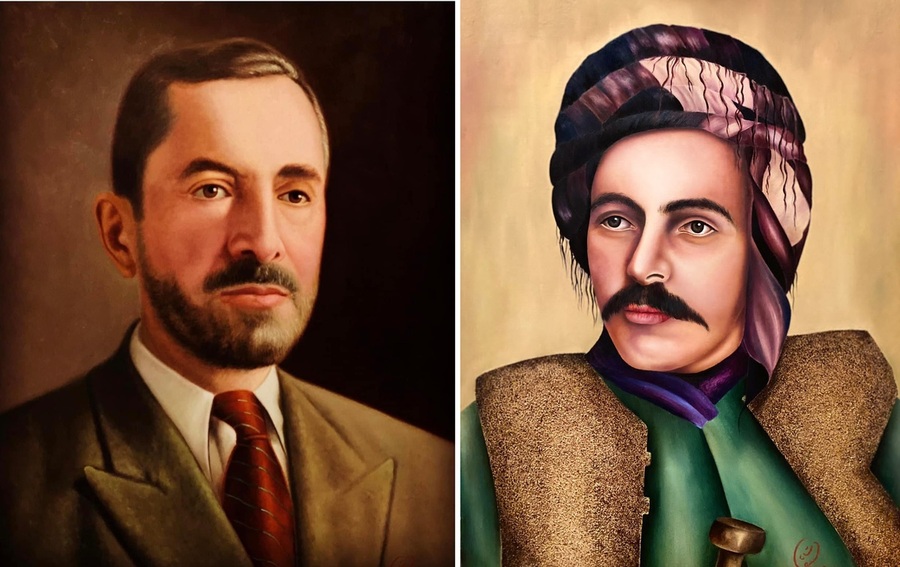Throughout history, the language of art has been different and influential. Therefore, from the very beginning of social life, people have tried to apply a different language from the ordinary one to communicate, express, and meet their needs in a more effective language that can express itself outside of the normal language with different codes, symbols, and signs. Tracing back the history of such inventions, linguistics, and symbols, requires a return to the history of the world's art and looking for the first phenomenon in the field.
If we briefly refer to this effectiveness, we reach the conclusion that human beings are cut apart from the language and the system composed of words and sentences and the series of causes and effects of the words and system of oral symbols and they have searched for another structure for communicating. The most effective field was the field of drawing and painting. Even now, the painted images on the cave walls and the ridges of the mountains are texts that are regarded and analyzed.
In other times people have looked for other ways to express their meanings. Examples of these ways of expression can be seen in the history of Greece and Rome. The importance of a place where the art of theater in those countries was an aspect of their development via a new artistic field and another aspect of it was searching for a different and more effective language for expression and they had found that language in the field of theater. The discovery and search for related sources to the Greek era especially Plato's writings showed how was the statue of the area of the theater.
This short commentary shows how the different language and unusual expressions of sensitive topics can attract the audience's attention. These audiences can be natives or from a larger border among foreigners and those who are out of our national identity circle.
Although painting does not have an ancient history among Kurds, in the twentieth century some effective attempts have been made. However, neither painting nor theater has become a part of Kurdish aesthetic tradition or even the Middle Eastern people in general.
In this article, I just want to mention some of the works of a young Kurdish artist who has made a special attempt in this field. The artist lady, "Sa'adat Barzani" who was a student of art school and has studied this form of expression and aesthetics in a scientific method has created real and surreal works of art. Obviously, it is necessary to analyze these two areas carefully which requires a deliberate scope and a different opportunity.
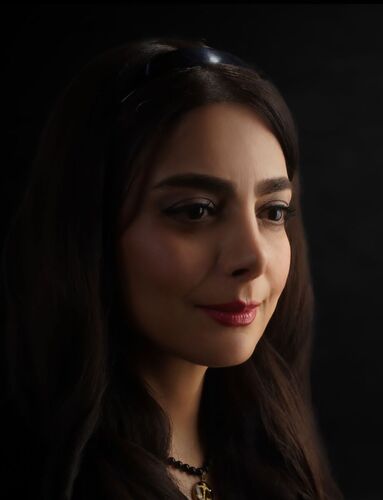
Sa'adat Barzani
What I want to mention here is a special project among all the artistic works of this artist that can have an impact on both Kurdish and non-Kurdish audiences.
The artist Sa'adat Barzani has made a unique effort in the project of a portrait of Kurdish influential personalities. Portrait painting is a form of painting the portrait of figures from an artistic perspective. This art form has existed since ages ago among painters. For example, the portrait of great authors and artists such as Dostoevsky, Tolstoy, Nietzsche, and Wagner, politicians men such as Napoleon, Marx, Lenin, and other world intellectual and political leaders proves the fact the fact that painters have wanted to illustrate an aspect of these figures' life in addition to showing their abilities in painting. A kind of introduction that does not need a normal language. A knowledge based on the language of images, colors, and lines. This is a universal language that does not need translation or making the audience understand it; whatever the audience sees is what they understand. They read a text with their eyes that is made of colors, lines, and images.
What is important in this attempt of Sa'adat Barzani is that she has painted a collection of influential Kurdish figures' portraits, each of whom has left a sign on the Kurdish identity. This means that this project of hers is mostly a social and political project rather than a personal one. Emphasizing those influential Kurdish figures in the political field, regardless of their political point of view and only considering their positive influence on the policy of Kurdistan, those artistic figures who have had creativity in their field of work, those historical figures who are eminent faces in the history of Kurdistan, those influential Kurdish women who are representatives of a part of the Kurdish society and at the same time show the different situation of Kurdish women within geography that is surrounded by anti-women countries and … proves that this artist wants to show a much bigger picture to her audience.
This means that if each portrait of this artist merely depicts the face and personality of an influential Kurdish individual in a particular field, the collections represent a larger picture which is the rich identity of Kurdish people in a geography called Kurdistan. In the method of collage, the artists try to create a larger and more meaningful image by putting smaller pieces of material. An image that consists of smaller meaningful materials and at the same time conveys a greater meaning that is different from each smaller piece as a holistic body set beside one another based on a plan. It is all of them and none of them. Each portrait has a unique personality, meaning and history and the collection of them conveys a greater meaning. A meaning that can be collected under the name of those who built up the Kurdish identity.
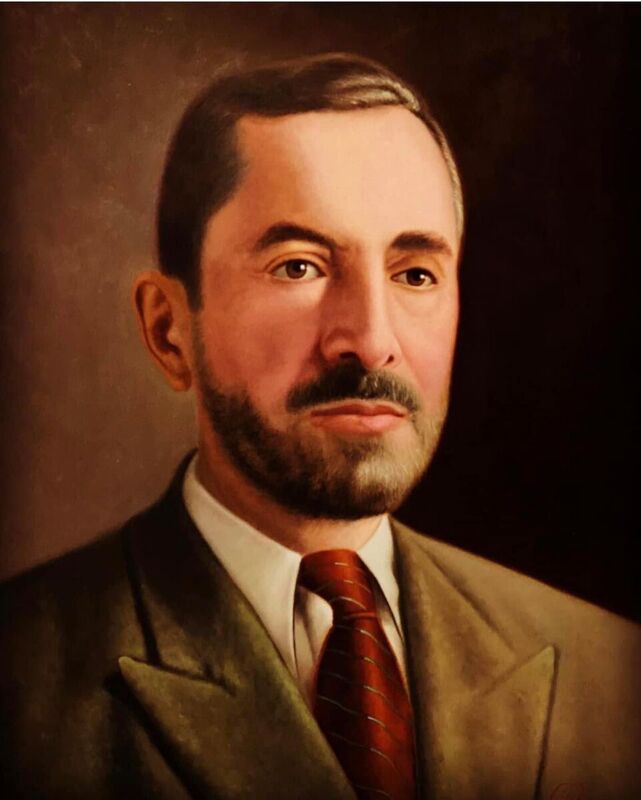
Peshawa Qazi Mohammad
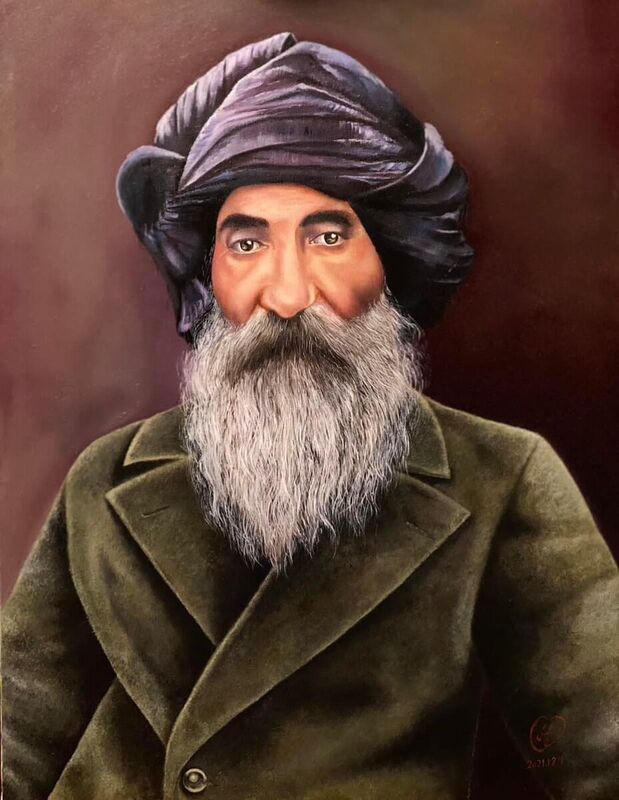
Sayd Reza Dersimi
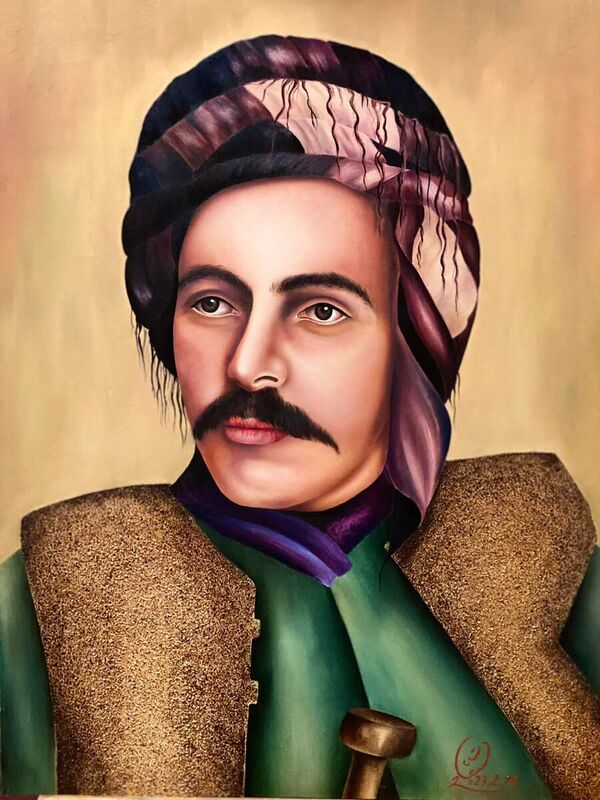
Simko Shikak
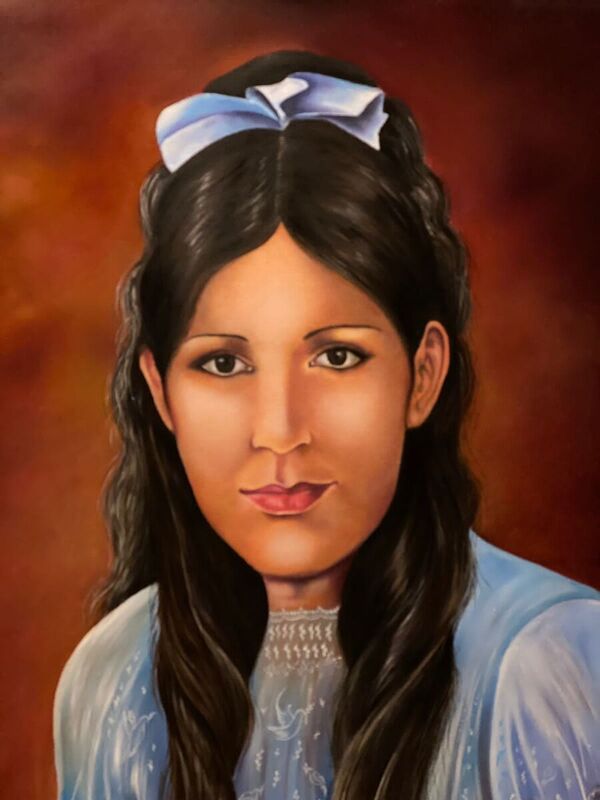
Layla Qasm
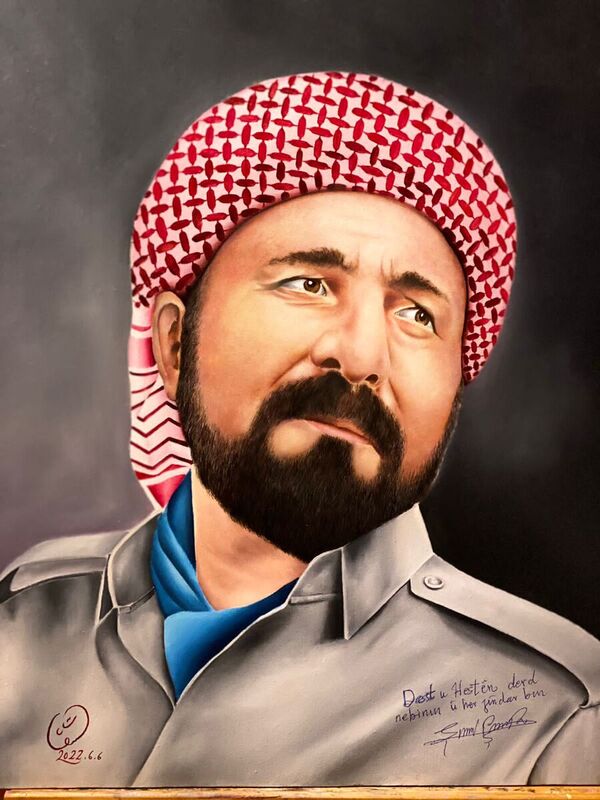
Shivan Perver
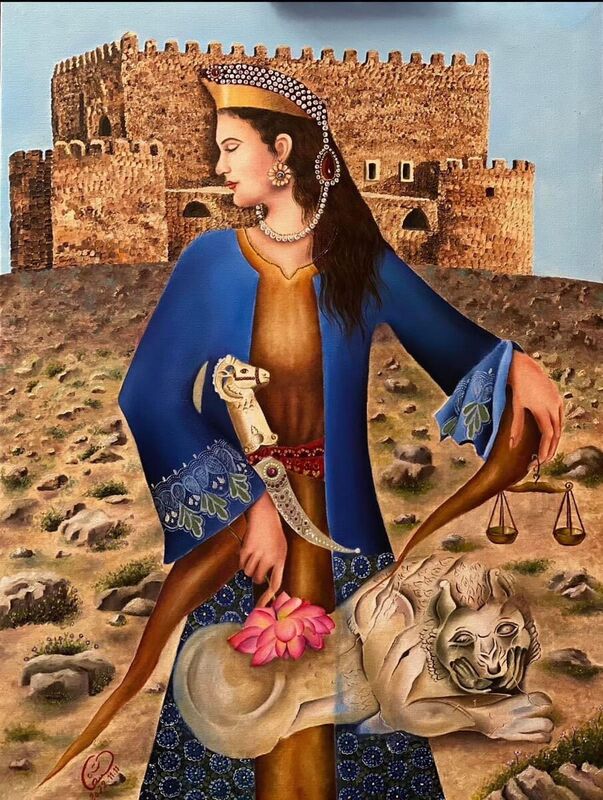
Khanzadi Soran
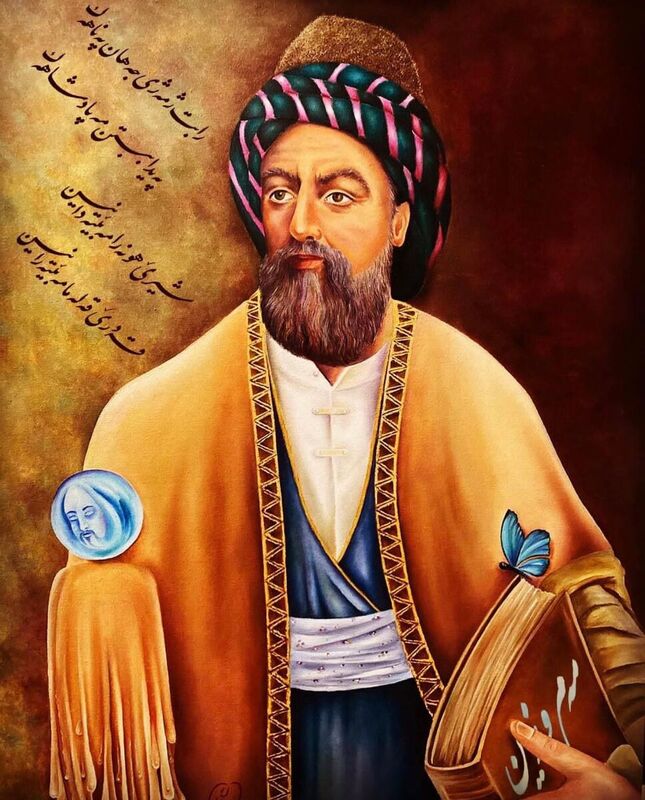
Ahmad Khani
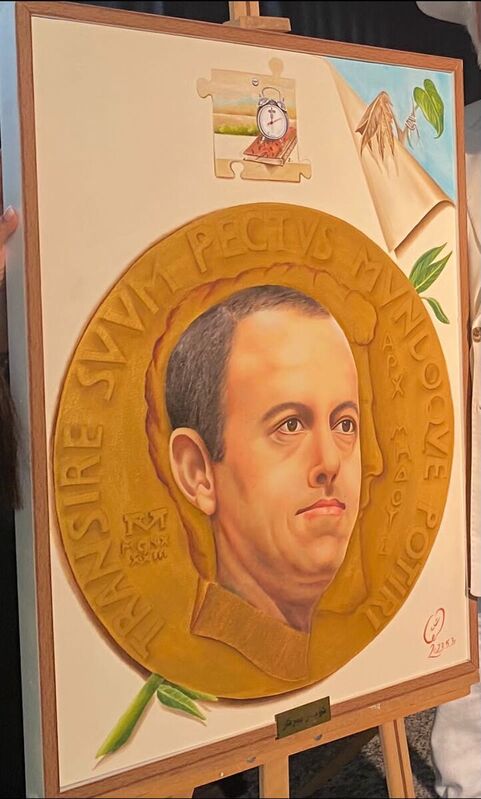
Kochar Birkar
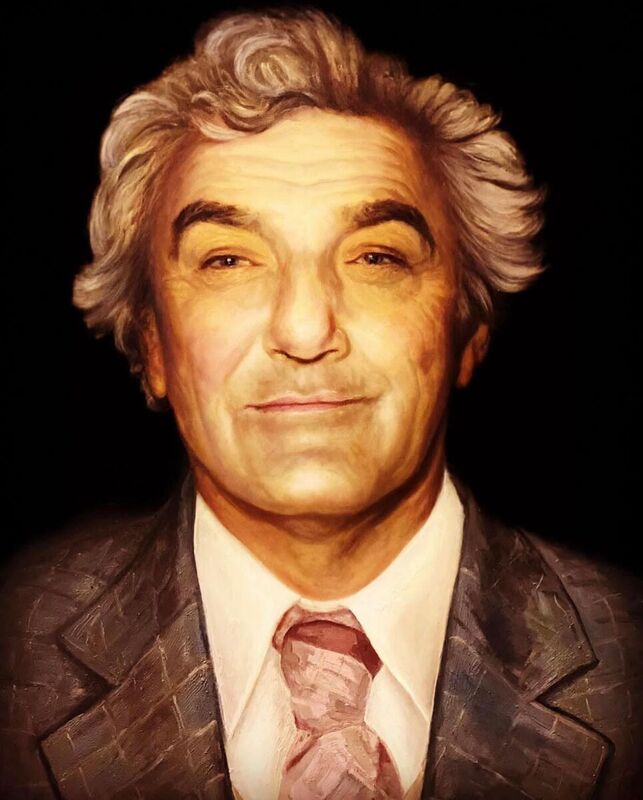
Hemn Mukeryani
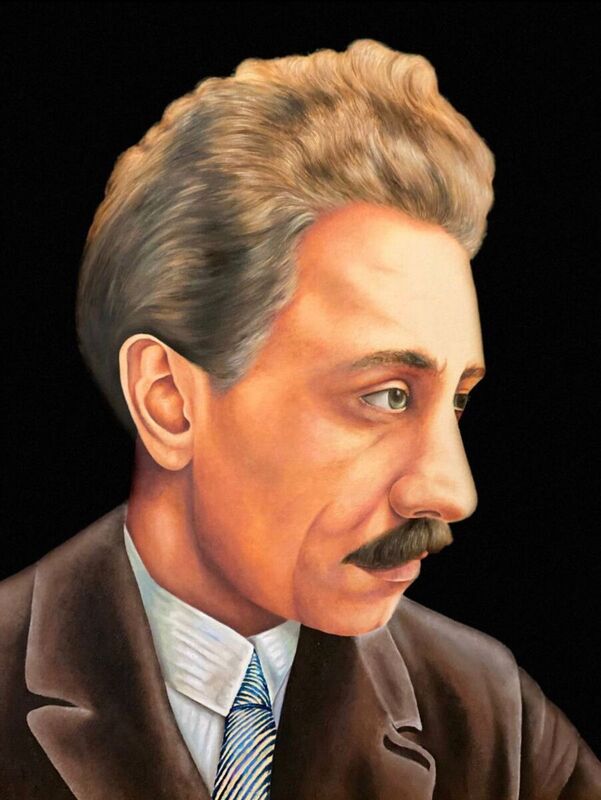
Jaladat Badrkhan
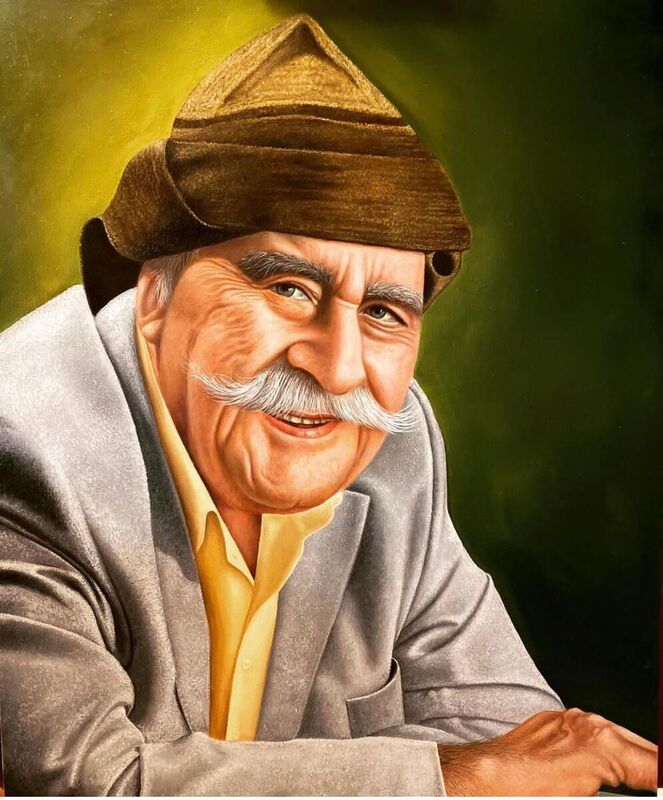
Hedi
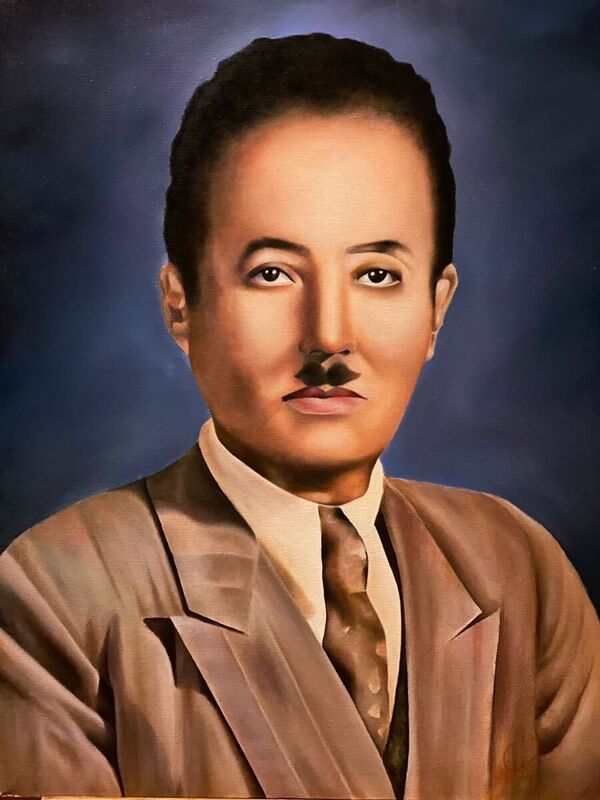
Ehsan Nouri Pasha

